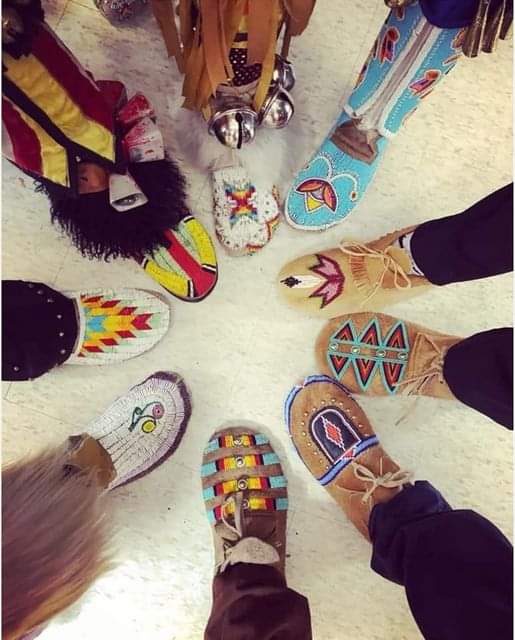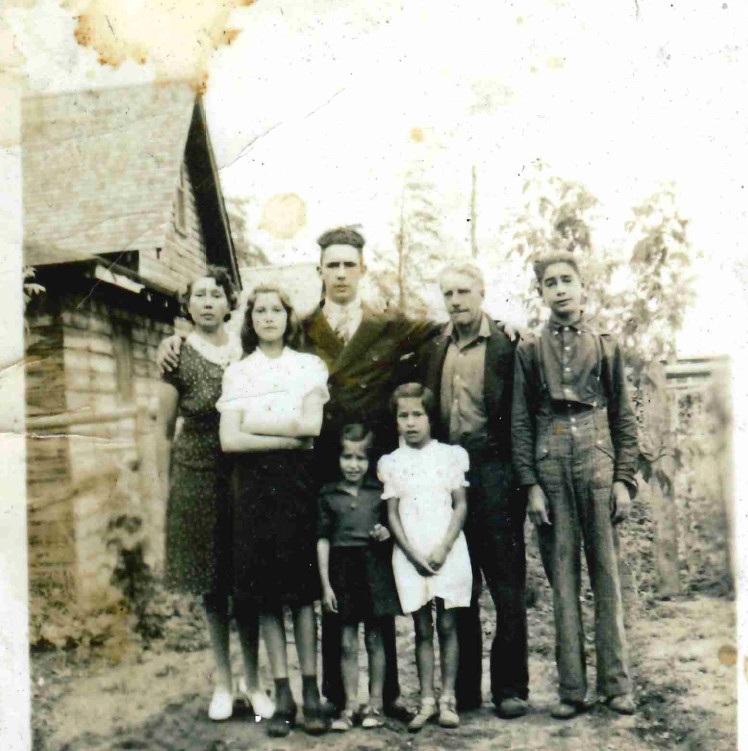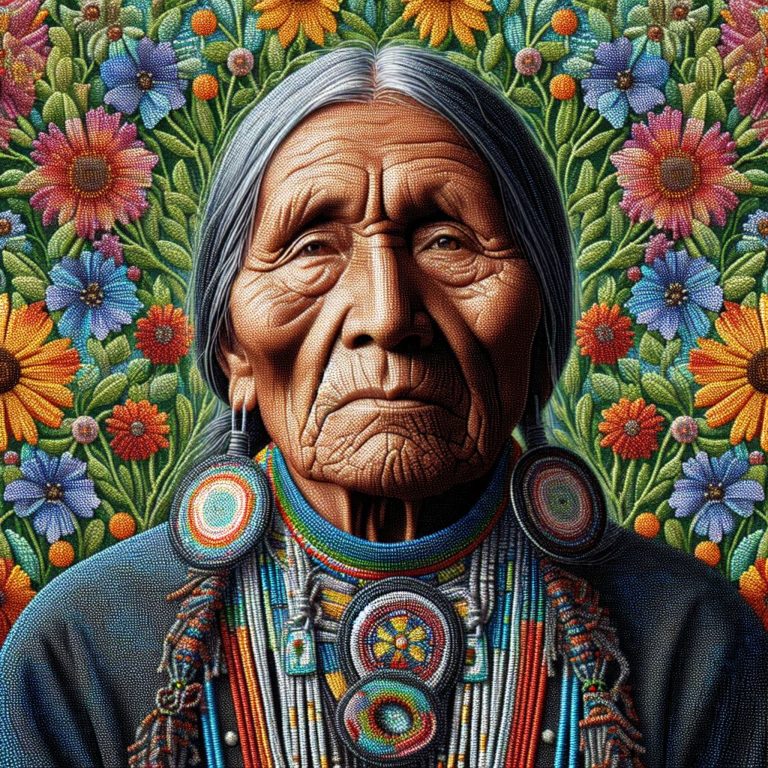Decolonizing Professional Responsibility in the Legal Profession: An Examination of Respect and Bravery from the Seven Grandfather Teachings
The legal profession, much like other institutional structures, is deeply interwoven with the legacies of colonialism, which have often led to the marginalization of Indigenous voices and perspectives. Recognizing this legacy is the first crucial step in the journey towards transformation—a journey that necessitates not a mere shift but a profound metamorphosis in our attitudes, our understandings, and our practices.
In this quest for transformation, we must look beyond the traditional paradigms of Western legal thought. A significant step toward this change involves acknowledging, embracing, and integrating the rich tapestry of Indigenous wisdom that has existed for thousands of years, much of which is encapsulated in the Seven Grandfather Teachings.
The Seven Grandfather Teachings—respect, bravery, love, honesty, humility, wisdom, and truth—originating from the Anishinaabe nations, are ethical principles that guide individuals towards living a balanced and fulfilling life. When transposed onto the backdrop of the legal profession, they can serve as a powerful guiding framework, contributing to a culturally-responsive, inclusive, and wholistic approach to our professional responsibilities.
Decolonizing the legal profession does not simply mean adding an Indigenous component to the existing legal system. It involves examining and challenging the underlying assumptions, beliefs, and structures that are products of a colonial past. It means reshaping the legal landscape to be more inclusive, equitable, and reflective of the diversity of societies and cultures it purports to serve.
The incorporation of the Seven Grandfather Teachings into the legal profession presents a transformative opportunity. It allows us to envision a legal practice that genuinely respects and values diversity, actively works towards justice for all, and maintains an unwavering commitment to truth.
In the following sections, I will explore two of the Seven Grandfather Teachings in the context of the legal profession, respect (mnaadendimowin) and bravery (aakode’ewin) providing practical examples and potential solutions for their integration, and thus, laying out a pathway towards a decolonized legal practice.
Respect (Mnaadendimowin)
In the pursuit of decolonizing the legal profession, respect takes on a profoundly deeper meaning, transcending beyond the formalities typically observed within the legal environment. At its core, respect acknowledges the inherent dignity and worth of all individuals and communities, especially those who have been marginalized, such as Indigenous peoples.
Respect in the decolonization context involves acknowledging and valuing the diverse cultures, traditions, and knowledge systems that exist in our society, especially those that have been historically undervalued or ignored, like Indigenous laws, rights, and legal traditions. It is about treating these perspectives not as exotic or alternative insights, but as integral components of a multifaceted legal ecosystem.
A lawyer can display respect by actively engaging with and learning from Indigenous elders, legal practitioners, and community leaders. For instance, lawyers could attend workshops, lectures, or courses on Indigenous laws and legal traditions, thereby fostering an environment of mutual respect and learning. Participating in cultural ceremonies, with permission and proper protocols, can also provide valuable insights into Indigenous perspectives on justice and community.
Further, respecting Indigenous perspectives means advocating for their inclusion in the development and application of laws and policies. For instance, in negotiations involving land use or natural resources, lawyers could ensure that Indigenous rights and traditional land knowledge are considered and respected. In litigation, they could call on courts to consider Indigenous legal traditions relevant to the case at hand.
Moreover, respect involves treating each client, regardless of their background, with dignity and understanding. For lawyers working with Indigenous clients, this could mean taking the time to understand their unique needs and circumstances, recognizing the impacts of intergenerational trauma, and providing culturally sensitive services.
Respect also involves acknowledging and challenging systemic bias within the legal system. It means recognizing how colonial histories have influenced our current laws and legal institutions and advocating for reforms to address these injustices. This requires not just intellectual understanding but emotional empathy and a commitment to justice.
In essence, respect within a decolonized legal profession goes beyond professional courtesy. It entails an appreciation for diversity, a commitment to learning and understanding, and an active effort to ensure justice and equity for all. It’s a foundational pillar for a legal profession that truly serves all members of society.
Bravery (Aakode’ewin)
Bravery within the context of decolonization goes beyond the conventional understanding of the term. It does not merely refer to individual courage but extends to collective efforts to challenge entrenched norms, structures, and power dynamics that perpetuate systemic biases and historical injustices.
To begin with, lawyers need to display the courage to confront and challenge existing systems that uphold inequalities. In practical terms, this might involve using their influence and expertise to advocate for policy changes that recognize, protect, and enhance Indigenous rights. It could mean scrutinizing and challenging laws and legal practices that disproportionately impact Indigenous communities negatively, a form of bravery that requires significant commitment and resilience.
For instance, lawyers could actively participate in litigation or pro-bono work aimed at advancing Indigenous rights. Such cases may range from land disputes to advocating for recognition of traditional hunting and fishing rights, to challenging discriminatory law enforcement practices. Each case represents an opportunity to promote a just application of law for Indigenous communities and chip away at the injustices ingrained in the legal system.
Bravery also entails the courage to be vocal about these issues outside the courtroom. Lawyers can use their platforms to raise awareness about the injustices faced by Indigenous communities, to push for reforms, and to educate their peers about the importance of decolonizing the legal profession. This can take place in a variety of forums, from academic publications and media interviews to social media platforms and legal conferences.
Furthermore, bravery involves the courage to self-reflect and recognize one’s unconscious biases. For a lawyer, this might mean acknowledging how their legal education and practice have been shaped by a predominantly Western-centric view of law and justice, and actively seeking to broaden their perspective.
In essence, bravery in the process of decolonization is multifaceted—it involves the courage to confront systemic issues, advocate for change, engage in challenging work, and question one’s own beliefs and assumptions. It is an ongoing process, but one that is essential for creating a more equitable and inclusive legal profession.
Conclusion
Throughout this exploration, we’ve examined how the Indigenous teachings of respect (mnaadendimowin) and bravery (aakode’ewin) can play a pivotal role in the decolonization of the legal profession. Through the principles of respect, we understand the need for a profound recognition and valuation of diverse cultures, traditions, and knowledge systems, especially those of Indigenous peoples. This respect necessitates ongoing learning, advocating for inclusion, and challenging systemic biases within the legal system.
Similarly, the teaching of bravery pushes us to take collective action and courageously confront entrenched power structures and systemic injustices, advocating for change and equity in the legal system. It calls upon legal practitioners to reflect, learn, and grow beyond the Western-centric view of law and justice.
However, these are just two elements of the Seven Grandfather Teachings. There are more teachings to delve into, more wisdom to be drawn upon in this ongoing journey of decolonization. They provide us with a nuanced and wholistic framework that, if embraced, can radically reshape our legal landscape towards one of equity, respect, and justice.
Decolonizing the legal profession is a complex and multifaceted process that requires an unwavering commitment. The Seven Grandfather Teachings offer an invaluable guide in this journey, and their incorporation into the legal profession is a transformative step towards an inclusive and equitable practice.
It is important to remember that the goal of decolonization isn’t to merely append Indigenous perspectives onto an existing structure, but to challenge, deconstruct, and ultimately reshape the legal profession. By doing so, we can move towards a justice system that truly serves and reflects the diversity and richness of the society it serves.
In closing, this exploration of respect and bravery only begins to scratch the surface of the transformative potential of Indigenous teachings in the legal profession. As we continue to engage with these principles, we lay down the groundwork for a reimagined, decolonized legal system—one that holds space for all forms of wisdom and provides justice for all.





